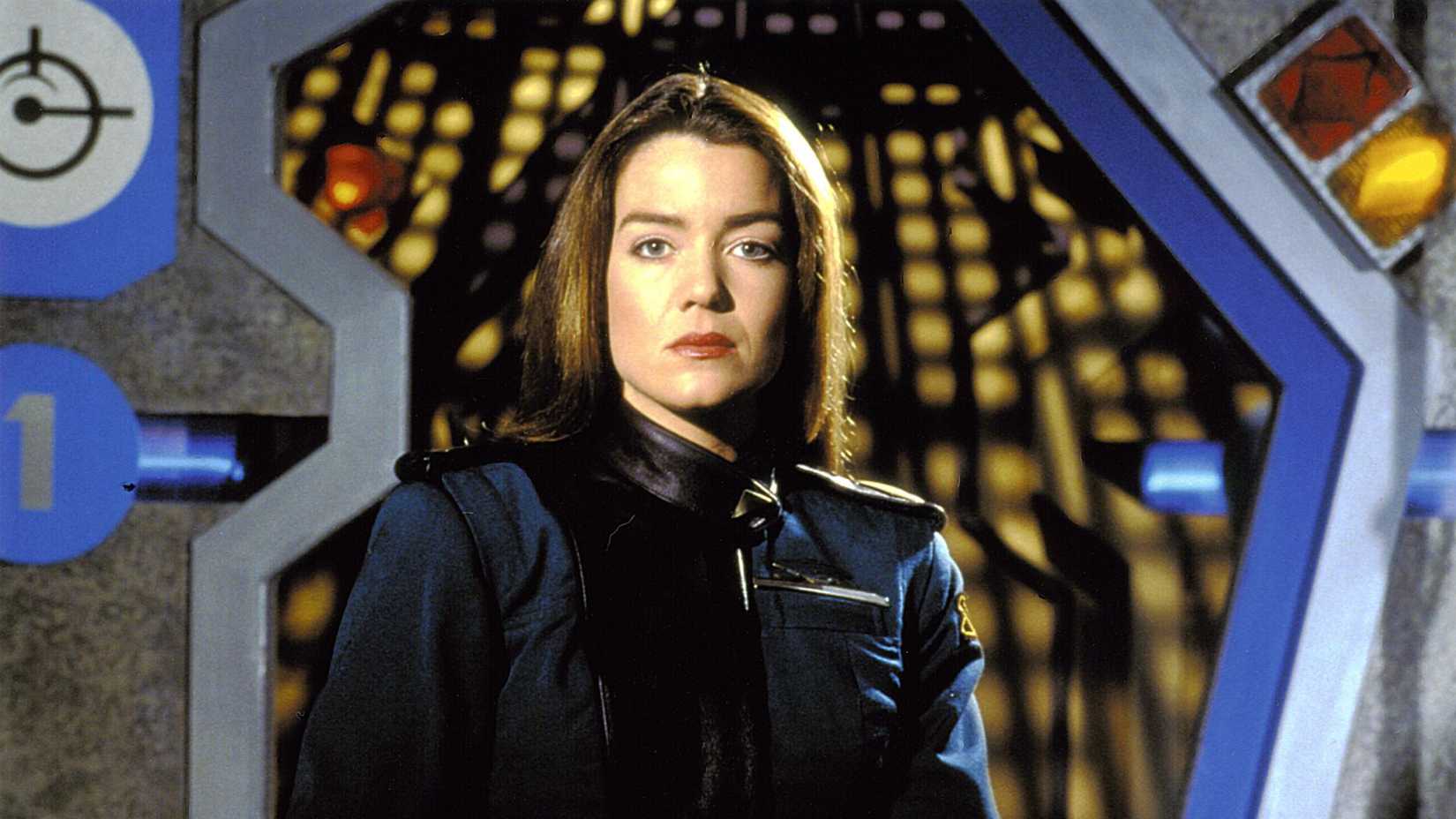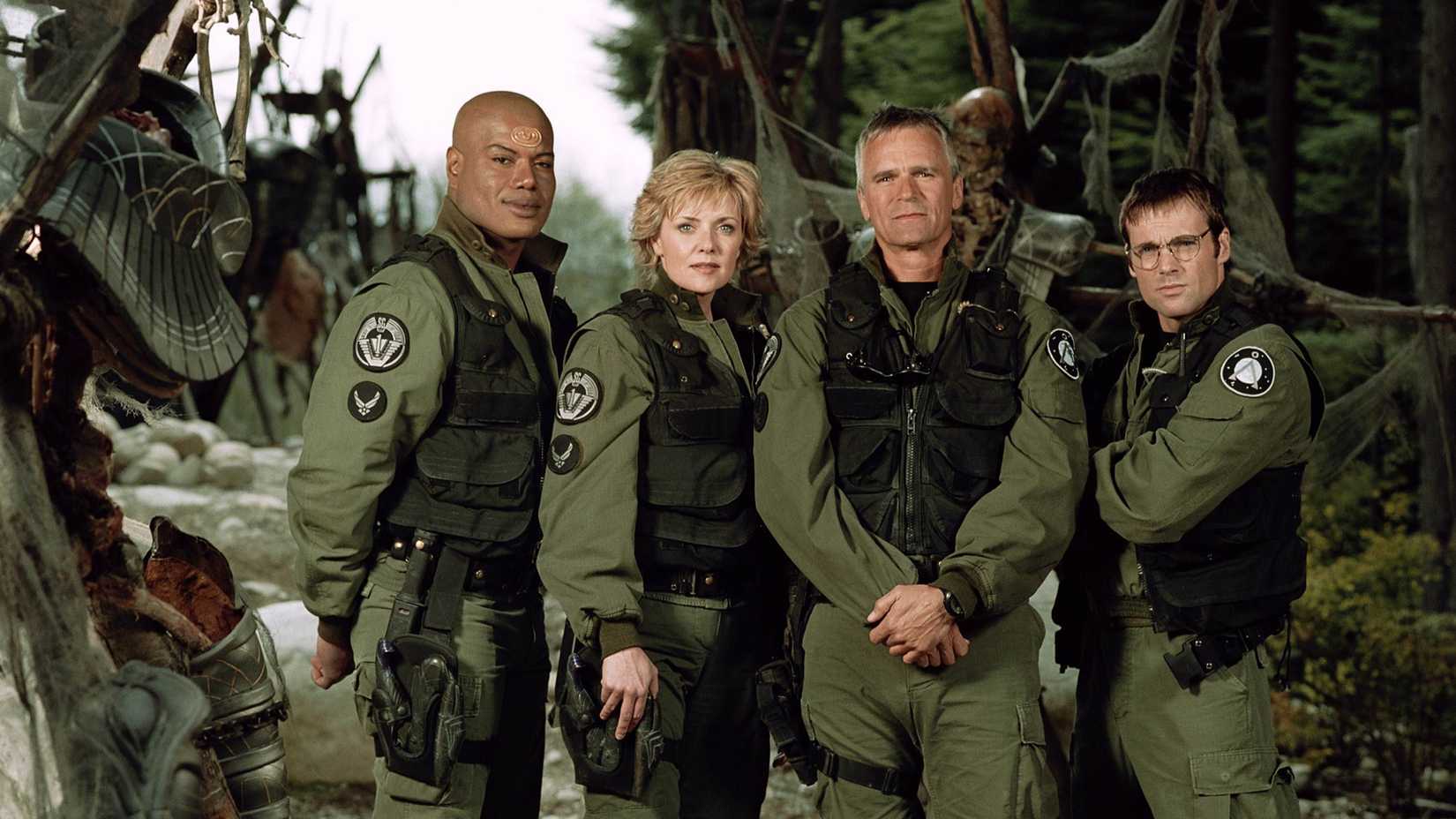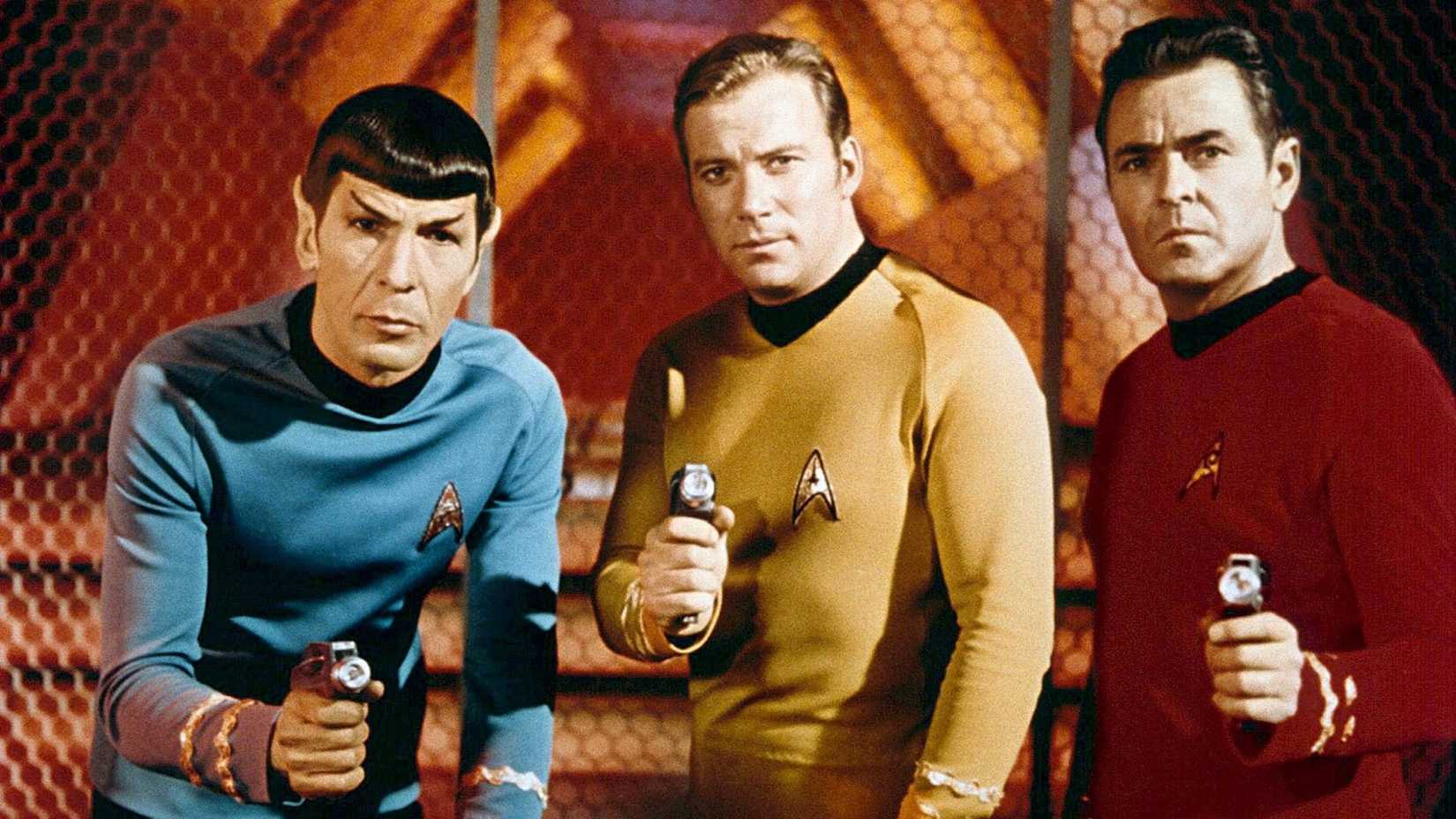We’re still mourning the conclusion of The Expanse, but if you’re looking for something just as good to watch, we’ve got you covered. In many ways, The Expanse is a traditional sci-fi that checks all the boxes of the genre. It falls under the space opera subgenre, which means a massive (you could say expansive) landscape for The Expanse‘s adventures to play out across. Add in that found-family dynamic, and this TV show truly is a masterpiece.
Some areas in which The Expanse is wholly unique are its approach to sci-fi technology and physics. It’s still rooted in imaginative fiction, but the show does its best to function within the boundaries of realism. You won’t find that in many other sci-fi TV shows. However, The Expanse‘s other assets have been adequately mastered by some of the best sci-fi series TV has to offer.
Battlestar Galactica
An absolute classic in the sci-fi space opera genre, Battlestar Galactica is, in many ways, the central inspiration for projects like The Expanse. The franchise covers a wide range of media, including a 1979 film, a TV series that premiered the same year, a variety of TV reimaginings that stretch between 1980 and 2010, a web series, and a number of video games.
You won’t regret diving into Battlestar Galactica. The franchise is set in a distant universe in which the cybernetic Cylons plague humanity. To escape these villains and find lasting freedom, the massive Battlestar Galactica and its fugitive crew head out in search of Earth, the 13th colony of legend. Battlestar Galactica is an intense, intelligent, politically relevant masterpiece.
For All Mankind
You may notice a few Ronald D. Moore TV shows on this list, but for a very good reason. For All Mankind is another series helmed by this master of sci-fi, and it’s on the newer side of similar projects. It premiered on AppleTV and is still ongoing, so this is a great investment for anyone looking to dive into a sci-fi show that still has plenty to offer.
For All Mankind currently has four seasons. There are plans for a total of seven seasons.
For All Mankind imagines that the space race of the 20th century never ended. In this version of reality, it was the Soviets who first landed on the moon, and the US responded with an intensified competition for further reach across the Solar System. This exploration of what could have been had the real-world space race not ended the way it did allows For All Mankind to match The Expanse‘s realism, making it an exceptionally intriguing replacement.
Farscape
Farscape is a unique fantasy TV show, but it shares a similar sort of history with The Expanse. Season 1 premiered in 1999 and was a critical success, allowing Farscape to proceed with three more of its planned five seasons. However, the project was suddenly canceled after a frustrating cliffhanger. Just as The Expanse was acquired by Prime Video after Syfy cancelled it, Farscape was revived by producer Brian Henson, leading to the miniseries Farscape: The Peacekeeper Wars.
Part of what makes Farscape so fantastic is the involvement of the Jim Henson Company, which created the looks of the various alien creatures through prosthetic and animatronic puppets. These unique features, combined with that classic found-family space-opera dynamic and political narratives, make Farscape a truly exceptional watch.
Babylon 5
Babylon 5 may be several leagues campier than The Expanse, but that’s exactly what makes it so spectacular. It’s a space opera in its purest form, initially released on PTEN in 1993 and wrapped up on TNT in 1998. Babylon 5 is a hybrid episodic series, with a complex overarching narrative enhanced by self-contained adventures.
As another classic space opera, Babylon 5 explores the conflicts among various worlds and races from its titular space station. The CGI may be outdated, but this quality only makes the still-relevant political themes that much more poignant. It’s delightfully bingeable and perfect for countless rewatches. You may find you love it even more than The Expanse.
Stargate SG-1
Stargate SG-1 is 1990s sci-fi at its finest. Based on the 1994 sci-fi movie Stargate, this TV show expands on the original adventure with a more comprehensive universe with an endless supply of planets, alien races, and ancient Earth descendants to explore. Stargate SG-1 is episodic by nature, but it still boasts a rather impactful overarching narrative.
Prime Video recently announced a new Stargate series, which should finally fill the void created by The Expanse’s ending.
This space opera revolves around the titular Stargate, an alien wormhole device that can transport individuals to any planet with another Stargate. What makes the show unique is its heavy use of mythology. The idea is that all ancient gods, including those of Egypt, Norse, Greek, Roman, and Christian mythology, are aliens who came to Earth to, in some way or another, rule over humanity. It’s creative, fun, and, sometimes, profoundly emotional.
Star Trek: The Original Series
Star Trek isn’t technically the first space opera TV show, but it is widely credited with popularizing this sci-fi subgenre. This essentially means that we can thank this classic series for the existence of every other TV show on this list. Interestingly, however, Star Trek had rather poor ratings when it was first released in 1966. It wasn’t until the 1970s that this series became the phenomenon that it is today.
Set within the Milky Way galaxy in the 2200s, Star Trek introduces us to Captain James T. Kirk, Science Officer Spock, and Medical Officer Leonard McCoy. These character archetypes have been carried across nearly every space opera in some shape or form, furthering Star Trek‘s iconic legacy. If The Expanse was your introduction to sci-fi, it’s absolutely imperative that you go back and watch this three-season adventure.
Star Trek: The Next Generation
After Star Trek: The Original Series gained global attention in the 70s, the series officially became a franchise with Star Trek: The Animated Series in 1973. Then, more than a decade later, in 1987, Star Trek: The Next Generation arrived on the scene. Set near the end of the 24th century, this series introduced Patrick Stewart’s Jean-Luc Picard, the successor to Captain Kirk.
Though Star Trek fans vary in their preferences for Star Trek: The Original Series and Star Trek: The Next Generation, the latter series achieved greater success while on the air. Once again, The Next Generation set the standard for later space operas like The Expanse, this time establishing deeper character-driven narratives, philosophical themes, and complex world-building.
Firefly
Firefly is the epitome of the found-family trope. Yet another space opera, the unique twist of this series lies in its Western influence. The protagonists are space cowboys through and through, and though the central crew, led by Nathan Fillion’s Captain Malcolm Reynolds, was frequently dysfunctional, the heart of the story is a heartwarming connection and loyalty.
Like The Expanse, Firefly revolves around the conflicts between a political confederation and an outlying population. Another commonality between these two series is adherence to realism. Though Firefly has lots of intense action and over-the-top fight choreography, it makes its scientific advancements feel feasible.
Andor
Andor is part of the Star Wars franchise, which is, of course, another massively popular space opera. However, this Disney+ series has managed to attract a fan base totally independent from the rest of the franchise. Andor leaves behind the typical centralization of Jedi and space battles, instead leaning into the political thriller genre.
The shift in Andor‘s genre compared to the rest of the Star Wars franchise means it’s not technically a space opera like The Expanse. However, the political themes and exploration of that rebel vs. empire dynamic will surely allow it to resonate with The Expanse fans. The best part is that it doesn’t really require any previous knowledge of Star Wars.
Foundation
Apple TV knows how to do sci-fi right, and though it has thrived predominantly in other subgenres, it has managed to put forth a truly exceptional wide-scale space opera. Foundation is an ongoing series that premiered in 2021 and was recently confirmed for a fourth season. It’s cognitively challenging and exceptionally well-built, with a somewhat grim, creepy tone that keeps us all hooked.
Foundation continues the age-old space opera concept of a galaxy ruled by a central Empire. However, this is about all that is traditional within the series. This sci-fi centers on a mathematician and psychology professor who uses his study of psychohistory to predict the Empire’s fall. It’s essentially impossible to summarize the complexity of Foundation beyond this, but it’s all part of what makes this series just as good, if not better, than The Expanse.
This story originally appeared on Screenrant










